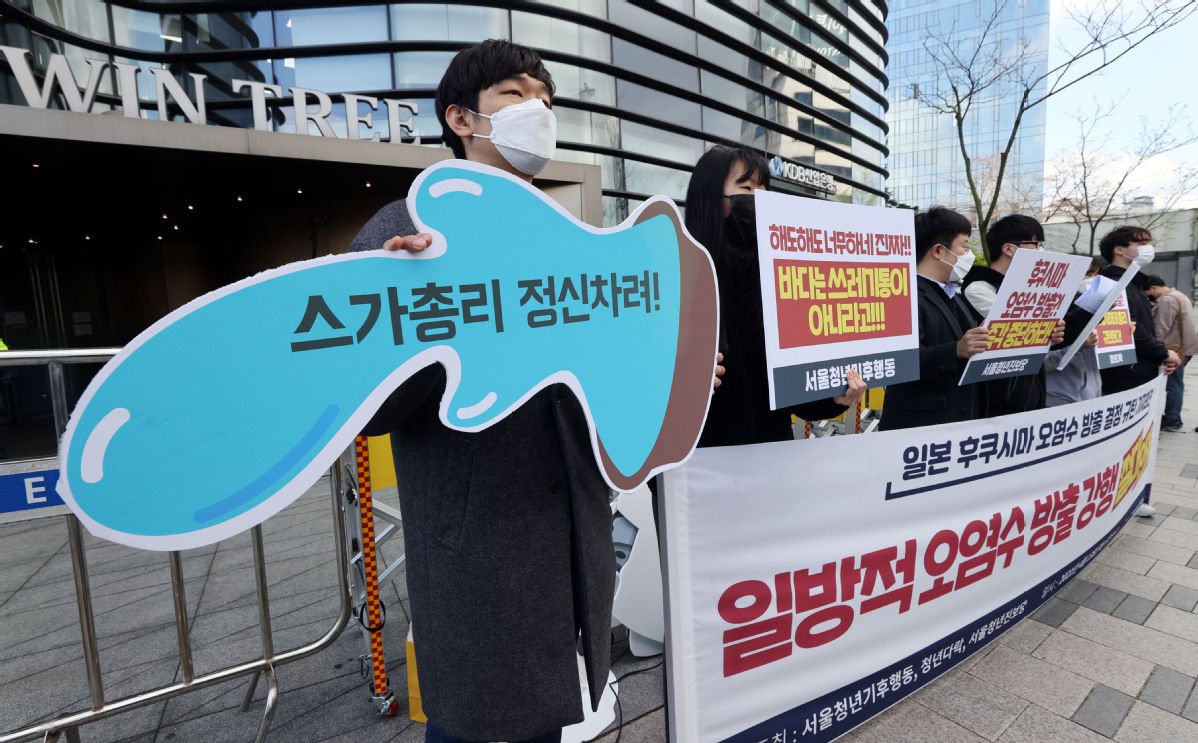Japan's cheap option will prove costly


Strong regret
South Korea on Tuesday expressed strong regret over Japan's decision.
Koo Yoon-cheol, head of South Korea's Office for Government Policy Coordination, called an emergency vice-ministerial meeting of officials to discuss Seoul's response, according to the Yonhap News Agency.
"The government expresses strong regret over the Japanese government's decision to release contaminated water from the Fukushima nuclear plant into the ocean," Koo said.
The official also said the government will refer its concerns to the International Atomic Energy Agency and request the international community to objectively review safety issues related to the Fukushima water release.
South Korean civic groups also on Tuesday asked Japan to reverse its decision to release contaminated water, denouncing the move as nuclear terrorism.
In a statement, an alliance of 31 anti-nuclear and environmental civic groups warned that the discharge would become an irreparable disaster for humans, well beyond the impact on the marine ecosystem.
"The Japanese government said it will gradually release radioactive water after diluting it to a level that is harmless to the human body. But diluting will not change the total amount of radioactive materials released into the sea," the statement said.
Greenpeace, a nongovernmental environmental organization with its headquarters in the Netherlands, on Tuesday said Japan's decision completely "disregards the human rights and interests of the people in Fukushima, wider Japan and the Asia-Pacific region".
"The Japanese government has once again failed the people of Fukushima," said Kazue Suzuki, climate and energy campaigner at Greenpeace Japan.
"The government has taken the wholly unjustified decision to deliberately contaminate the Pacific Ocean with radioactive wastes."


















